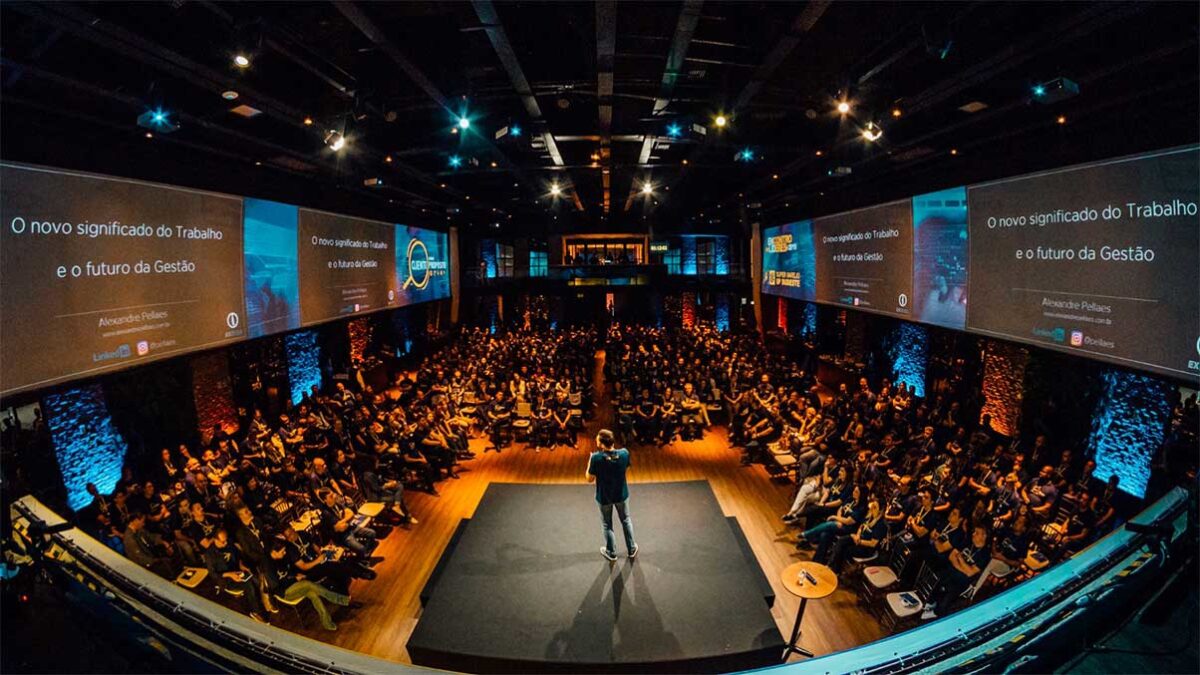Conferences serve as dynamic hubs of intellectual exchange, offering professionals a golden opportunity to showcase their ideas and contribute to the collective wisdom of their respective fields. Mastering the art of discussing your ideas at a conference is not just about presenting information but engaging your audience effectively. In this guide, we will unravel key strategies to help you navigate the intricacies of effective idea presentation at conferences.

How to effectively discuss your ideas at a conference
Understanding Your Audience:
The cornerstone of a successful presentation lies in comprehending your audience. Take the time to research and analyze the demographics, interests, and expertise of those attending the conference. Tailoring your message to resonate with their expectations ensures that your ideas are not only heard but also appreciated by the diverse minds in the room.
Crafting a Narrative Arc:
Humans are wired to respond to stories. Instead of bombarding your audience with raw data, weave your ideas into a compelling narrative. Begin with a captivating introduction that outlines the problem or question at hand, navigate through the methodology or solution, and conclude with the transformative impact of your ideas. A well-constructed narrative captivates attention and enhances idea retention.
Embrace Simplicity and Clarity:
Clarity is the beacon that guides your audience through the complexities of your ideas. Simplify your language, avoiding unnecessary jargon, and distill complex concepts into digestible portions. Reinforce your verbal message with visuals such as slides, infographics, or charts to provide a multi-dimensional understanding of your ideas.
Rehearse with Precision:
Practice is the key to a polished and confident presentation. Rehearse your talk repeatedly, focusing on refining your delivery and fine-tuning the timing of key points. Practice in front of a mirror, record yourself, or seek feedback from peers to identify areas that may need improvement. The more you rehearse, the more adept you become at navigating the nuances of your presentation.
Foster Audience Engagement:
An engaged audience is more likely to absorb and appreciate your ideas. Encourage interaction through questions, polls, or discussions. Pose thought-provoking queries that stimulate the minds of your audience and create an atmosphere conducive to idea exchange. A participatory audience is a receptive audience.
Open the Door to Feedback:
Feedback is a potent tool for growth. Welcome constructive criticism and view it as an opportunity to refine your presentation skills. Gather insights from colleagues or mentors, and be open to adjusting your approach based on the valuable feedback received.
Harness Non-Verbal Communication:
Beyond words, your body language, tone, and demeanor speak volumes. Maintain eye contact to establish a connection, use purposeful gestures to emphasize key points, and modulate your voice to convey passion and authority. A harmonious blend of verbal and non-verbal communication fortifies your presence on stage.
FAQs
- How can I overcome stage fright and nervousness?
- What strategies can I use to make my presentation more engaging?
- Is it essential to rehearse my presentation multiple times?
- How should I handle difficult questions during the Q&A session?
- What follow-up actions should I take after a conference?
- How do I effectively network with professionals at a conference?
Conclusion:
Effectively discussing your ideas at a conference is a nuanced dance of preparation, clear communication, and audience engagement. By acknowledging your audience, constructing a compelling narrative, embracing simplicity, and fostering interaction, you empower your ideas to take center stage. This mastery not only elevates your personal standing but also contributes to the vibrancy and knowledge enrichment of the conference community. As you embark on the journey of articulating your ideas, remember that the art lies not just in what you say but how you say it.
Read More:-How to start dropshipping in USA in 2024
Read More:- Top 5 Online Business Ideas You Can Start Quickly
